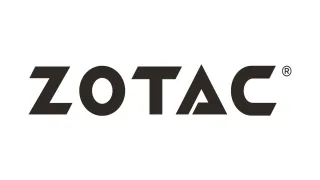AS A PHYSICAL therapist in Shanghai, Zheng Wang worked with people recovering from strokes after their brains had been damaged by oxygen deprivation. They usually followed a predictable recovery pattern, making lots of progress over the first few visits, then hitting a wall. Patients asked when they’d finally feel normal, and Wang told them that they’d get better with time. “But actually,” he remembers, “I knew from the bottom of my heart that they wouldn’t improve much, no matter how hard we tried.
Meanwhile, halfway across the world, Marc Dalecki, then an associate professor in the School of Kinesiology at Louisiana State University (LSU), couldn’t stop thinking about oxygen. Dalecki spent much of his early career studying scuba diving and remembers divers using nasal cannulas of O2 to help with everything from hypoxia to headaches. He always wondered whether this simple treatment could help neurological patients in rehab. “I promised myself that I would study it when I got my own research lab,” he says.
le practicing day-to-day tasks or relearning how to walk. “An oxygen tank could be a very easy add-on to daily training,” says Wang. “It’s just naturally there, not causing lots of distractions. I think it’s very viable.”
Critically, Dalecki says, the boost provided by oxygen during the second test seemed to last overnight—a good sign for rehab, when people need to relearn a wide range of daily tasks and be able to apply the progress they make during physical therapy to their daily lives.
But much more work needs to be done before pure oxygen is incorporated into neurological motor rehab. “We need trials in the right patient population, in more realistic settings. But this is how science starts,” says Hornby. “There are so many other layers to this.”
First of all, stroke risk increases with age, and the brains of young and old people are very different: Will an oxygen treatment that helps twentysomethings also help people over three times their age? With age, learning capacity decreases, blood vessels get stiffer, and metabolism slows down. With older patients, Wang says, “even if you provide them with extra oxygen, it might not help them as much as it helps young people.” But when it comes to relearning lost motor skills, he says, older people generally start at a lower baseline, giving them more room to grow.
Breathing in too much extra oxygen can cause oxygen poisoning, which can present as chest pain, coughing, nausea, and convulsions—and in severe cases, seizures, coma, and death. It’s a risk for scuba divers and people on ventilators, but Dalecki says this is very unlikely to happen in a rehab setting, where people are breathing oxygen at normal atmospheric pressure for less than an hour at a time. The motor task in the first study took about 30 to 45 minutes, about the same amount of time someone in stroke recovery would do physical therapy before getting too tired to continue.
Given the promising early results, low risk, and potential benefit to patients, Wang (who is now a postdoc at the Mayo Clinic) and Dalecki (now at the German University of Health and Sports in Berlin) aim to start testing oxygen in older people, and eventually in older people recovering from a stroke. There are still many details of this treatment to nail down: Should oxygen-assisted learning only happen in the first rehab session or two or does it need to be ongoing? How long will the effects last?
The skills stroke patients want to practice, like walking, speaking, and doing household chores, are much more complex than the simple tasks participants learned in the lab. Dalecki hopes that more scientists will dive into these questions now that the initial work has been done. “It sounds so simple,” he says, “and it’s now out in the world. I’m very excited to see what comes along with that.
Oxygen improved learning by 30%
The researchers observed that the participants who received oxygen exhibited accelerated learning and superior performance compared to the other group. These improvements persisted even during later sessions of the task when oxygen supplementation was not provided. Notably, the participants in the oxygen group demonstrated smoother and more precise pen movements. When the alignment of the cursor was intentionally modified to challenge them, they adapted more rapidly. Furthermore, during the realignment of the stylus, they made larger errors, indicating a more thorough integration of the previous alignment compared to the non-oxygen group.
Dalecki and Wang have intentions to further explore the enduring effects of oxygen supplementation on learning and extend their investigation to other motor learning tasks. It is conceivable that the specific brain functions associated with this particular task derive notable benefits from elevated ambient oxygen levels, contributing to the observed performance advantages. Additionally, they aspire to apply the oxygen treatment to elderly individuals and those who have suffered injuries, with the hope that it will assist them in reacquiring motor skills that may have been compromised.
Dalecki expressed their future plan to explore whether this treatment can enhance motor recovery processes in individuals who have experienced brain trauma. Given that the treatment yielded positive results in the young and healthy brain, they anticipate that the effects may be even more significant in individuals with neurological impairments, whose brains are more vulnerable. This line of research aims to uncover the potential of oxygen supplementation in aiding motor recovery in those with brain injuries.























